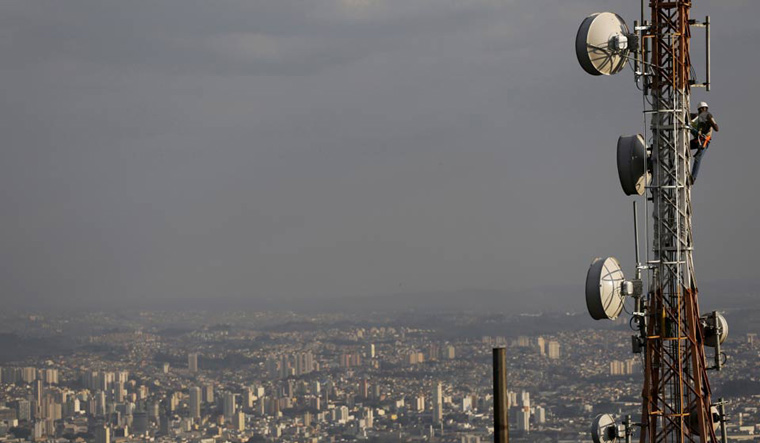After the Cellular Operators Association of India (COAI) wrote to the Department of Telecom over the mass requests it had made for call records of mobile subscribers in January and February, the government has denied attempting to spy on people, saying it was investigating the frequency of call drops.
Indian Express had reported that the government had been requesting call data records (CDR) of mobile subscribers in Delhi, Andhra Pradesh, Haryana, Himachal Pradesh, Jammu & Kashmir, Kerala, Odisha, Madhya Pradesh and Punjab, routing the requests through local units of the Department of Telecommunications.
According to the report, CDRs were sought in Delhi on February 2, 3 and 4, at a time when protests against the Citizenship (Amendment) Bill were raging in the capital, as well as campaigning in the run-up to the Delhi state elections.
CDR data includes the phone number of both parties in a call, the call’s duration, as well as information about how the call was routed through exchanges (which could serve as location data).
The report cited an unnamed senior telecom executive, who said that these requests had been coming for several months but that mass requests starting appearing in January and February.
On February 12, the COAI, which represents all major telecom operators as well as equipment and service providers, wrote to Anshu Prakash, Secretary, Department of Communications, saying that such requests could lead to allegations of surveillance, particularly in Delhi where there are numerous ministers, MPs and judges whose records could be included.
“CDRs sought for specific routes/areas may lead to allegations of surveillance, especially in a state like Delhi having numerous VVIP zones having offices and residences of ministers, MPs, Judges, etc,” Indian Express reported the COAI letter as saying.
Now, the government has sought to clarify that it sought the records in a bid to identify the extent of call drop. “There were complaints of call drops from various places, after which the government asked for call data records randomly and in bulk to investigate how many attempts it took to connect calls and the number of call drops," NDTV cited official sources as saying, who added that "The government's aim was to improve telecom services, not spy on citizens.”
A press release by the COAI clarified that their concerns have been met by the government.
“DoT has discussed the issue with us and explained the reasons for seeking the data. Being satisfied, we have cooperated with the DoT to source the information sought by the DoT to improve network quality and address call drops.”
The COAI added that the government’s rationale was to reduce call-drops, after having received several complaints, and that the DoT had decided to leverage “latest technologies and software, including big data analysis” and that it has developed “an application to identify and address various network problem issues such as call drops, etc, though the analysis of CDR data.”
The COAI reiterated that the call data was anonymised and that it does not contain the names of either the maker or receiver of the calls.
“The DoT has reiterated that the data sought does not contain personal information like names and addresses of the subscribers or the names of the persons to whom calls are made. In the case of a dump of data from a tower base station receiver (BTS) focus is not on any individual user but on the quality of the services to the subscribers while passing through that BTS area. The analysis applied on this data is to help it determine actual dark spots where calls were made repeatedly within less than 30 seconds of the call,” the release said.
It also says that the data was sought under the provisions of Rules 419 of the Indian Telegraph Rules, 1951, which mandates the telegraph authority to get such data for telegraph (telecom) network/equipment. “The SoP issued by the Department for seeking such data specifies that only an officer not below the rank of a Senior Administrative Grade officer, is authorised to seek this data. There are also oversight mechanisms exercised by a review committee chaired by the Head of the respective LSA. The above reiterates that the data sought from the TSPs are as per the provisions of Rules and as per the due process stipulated in the SoP.”


